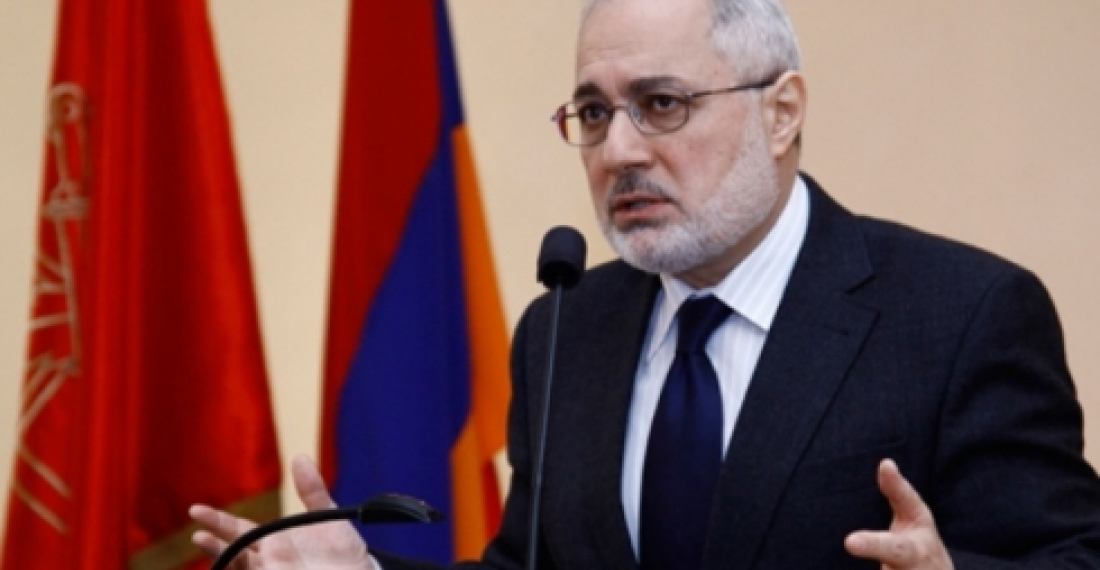Известие о смерти Ваана Ованнисяна, армянского политика и государственного деятеля, огорчила многих в его стране, а также среди армянских общин за рубежом. С 2013 года Ованнисян служил послом Армении в Германии. Но он был известен больше, как политик, и де-факто лидер Армянской Революционной Федерации - АРФ - (также известной как партия Дашнакцутюн).
Оганесян родился в Ереване. В 1978 году он окончил Московский государственный педагогический университет со степенью по истории и археологии. После службы в Советской Армии с 1978 по 1980, он был научным сотрудником. С 1990 по 1992 он принимал участие в нагорно-карабахской войне.
Он был членом Центрального комитета АРФ с 1990 по 1992 и членом Бюро АРФД с 1992 по 1995. Он был заключен в тюрьму с 1995 по 1998 вместе с другими членами АРФ и ее должностными лицами. Во времена президентства Левон Тер Петросяна был обвинен в планировании свержения правительства силой. Спустя несколько дней после назначения Роберта Кочаряна на пост президента он был выпущен. С 1999 по 2013 был видным членом армянского парламента, в качестве Председателя различных комитетов, включая Комитет Безопасности и обороны, а с 2003-2008 гг в качестве вице-спикера. На президентских выборах, состоявшихся 19 февраля 2008 года, Оганесян, выдвигался в качестве кандидата АРФД и набрал 6,2% голосов.
Оганесян был хорошо известен и уважаем среди политических кругов в западных странах, где он часто бывал в качестве гостя армянских общин и диаспоры. Он также был активным участником Социалистического интернационала - группировка мирового центра левых политических партий, где АРФД давно является членом. Он также в течение нескольких лет возглавлял парламентскую делегацию Армении в Парламентской Ассамблее НАТО.
Политический редактор Commonspace.eu в своем комментарии написал следующее:
Ваан Ованнисян - редкий тип армянских политиков, который совместил политическую проницательность и решимость, с большим личным обаянием и остроумием. У него были сильные, а иногда и противоречивые взгляды по ряду вопросов, которые он силой отстаивал как в Армении, так и на международной арене. Он был особенно критически настроен по отношению к Турции, и проводил кампанию за признание событий в Анатолии в 1915 как геноцид. Он часто принимал прагматический взгляд по вопросам, связанным с нагорно-карабахским конфликтом. Он принимал участие в конфликте в начале 1990-х годов, но был готов сидеть с азербайджанскими политиками и обсуждать решение этого конфликта. Последние два года его присутствие в большой политике Армении стало менее заметным, так как он был назначен Послом в Германии. Известие о его смерти огорчило многих армян и тех, кто его знал.
источник: commonspace.eu
фото: Ваан Ованнисян, армянский политик, который 28 декабря 2014 ушел из жизни (фото из архива).






